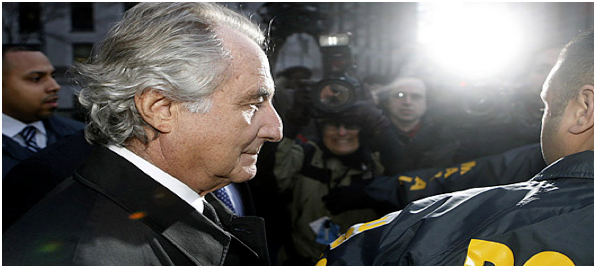WALL STREET - Sometimes, members of Congress follow harebrained logic. If the consequences weren't so serious, it would be hilarious.
Consider a House bill co-sponsored by Reps. Spencer Bachus (R-AL) and Carolyn McCarthy (D-NY) that would essentially let investment advisers regulate themselves.This idea stinks. Everyone knows: You don't let the fox guard the henhouse.
Bachus and McCarthy say their Investment Adviser Oversight Act of 2012 tightens up needed supervision of large investment advisers — the people you trust to handle your retirement nest egg.
Yet the SEC is so understaffed it has never examined 40 percent of the investment advisers under its jurisdiction. The agency reviewed only 8 percent of the more than 12,600 investment advisers it oversees last year.
And while new rules will shift about 2,000 mid-size advisers (those who oversee up to $100 million in assets) to state jurisdiction at the end of June, some industry analysts say the move will do little to ease the SEC's workload.
Here's where this bill's logic gets silly. Rather than address the SEC's shortcomings by boosting its budget, it shifts responsibility for the investment advisers under SEC jurisdiction to an organization controlled and financed by Wall Street. That would probably be the Financial Industry Regulatory Authority.
This group, known as FINRA, suffers from an inherent conflict of interest because it collects membership fees from the very securities firms it oversees. This arrangement undermines its ability to regulate Wall Street — and its own credibility.
Compounding this conflict of interest is the financial group's troubling lack of transparency and accountability. Even Big Business lobbies such as the Chamber of Commerce have complained that unlike the SEC, FINRA isn't required to comply with the Freedom of Information Act, which allows it to keep many of its records hidden from journalists and watchdog groups, including my own.
Even when it does produce documents, there can be problems. An SEC administrative order issued last year found that the Financial Industry Regulatory Authority had altered minutes of its staff meetings before turning the documents over to the SEC. The agency found that it was the third time in eight years that it had tried to mislead the SEC this way.
In a letter my organization sent to the House Financial Services Committee last month, we pointed out recent examples of ties between current and former FINRA officials and firms that were later investigated or charged with fraud involving major investor losses.
Who tops that list? Bernie Madoff, the man who bilked investors of at least $64 billion in the largest Ponzi scheme ever. Not only had Madoff served as chairman of the NASDAQ stock exchange in the early 1990s, his brother, son, and niece all had ties to either FINRA or its predecessor, the National Association of Securities Dealers (NASD).
While there was no indication that family members helped Madoff avoid scrutiny, it's clear that FINRA and the SEC ignored tips that would have exposed Madoff's scheme years earlier.
Harry Markopolos, the private financial fraud investigator credited with discovering Madoff's scheme and reporting it to the SEC, was asked by a congressional committee if he ever considered taking his findings to NASD or FINRA.
Not a chance, Markopolos said.
"What I found them to be was a very corrupt, self-regulatory organization, that if you took a fraud to them, they would ignore it as soon as they received it," Markopolos testified. "They were there to assist [the] industry by avoiding stricter regulation from the SEC."
And while Madoff's scam didn't' trigger the financial crisis, what did bring us to the brink was risky, questionable behavior by Wall Street traders.
Incredibly, as we continue to claw our way out of the hole that Wall Street's greed put us in, some lawmakers want to rig the system in the financial industry's favor.
Congress should reject the Bachus-McCarthy Investment Adviser Oversight bill. This is no time to loosen Wall Street oversight.
(Joe Newman is the director of communications for the Project On Government Oversight. www.pogo.org This article was provided CityWatch by OtherWords, a project of the Institute for Policy Studies … otherwords.org) Photo credit: David Paul Ohmer / Flickr
-cw
Tags: Joe Newman, Spencer Bachus, Carolyn McCarthy, House, Senate, Washington, Wall Street, Madoff, Bernie Madoff, regulations, finance
CityWatch
Vol 10 Issue 49
Pub: June 19, 2012





